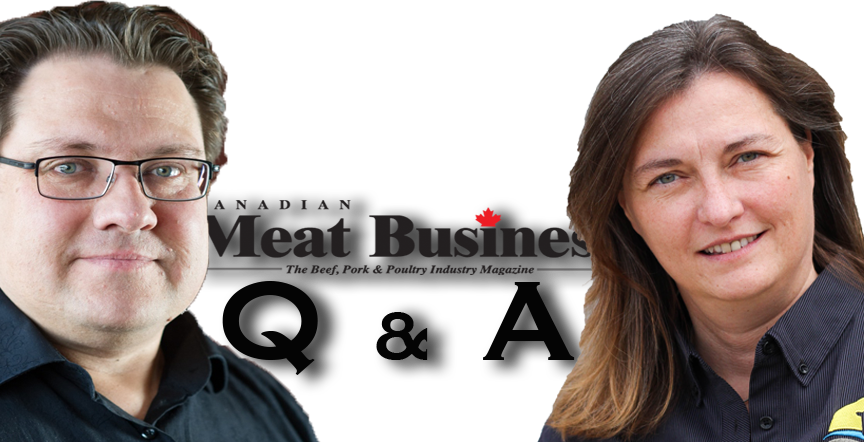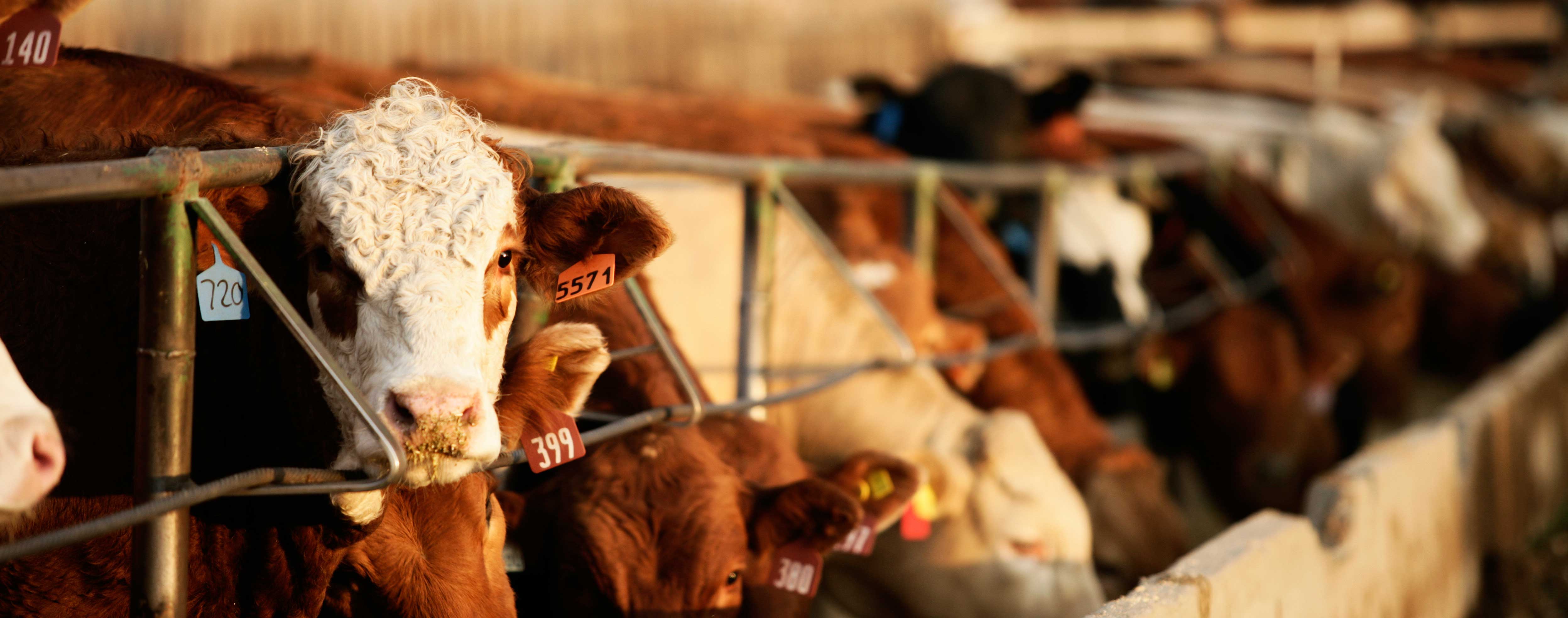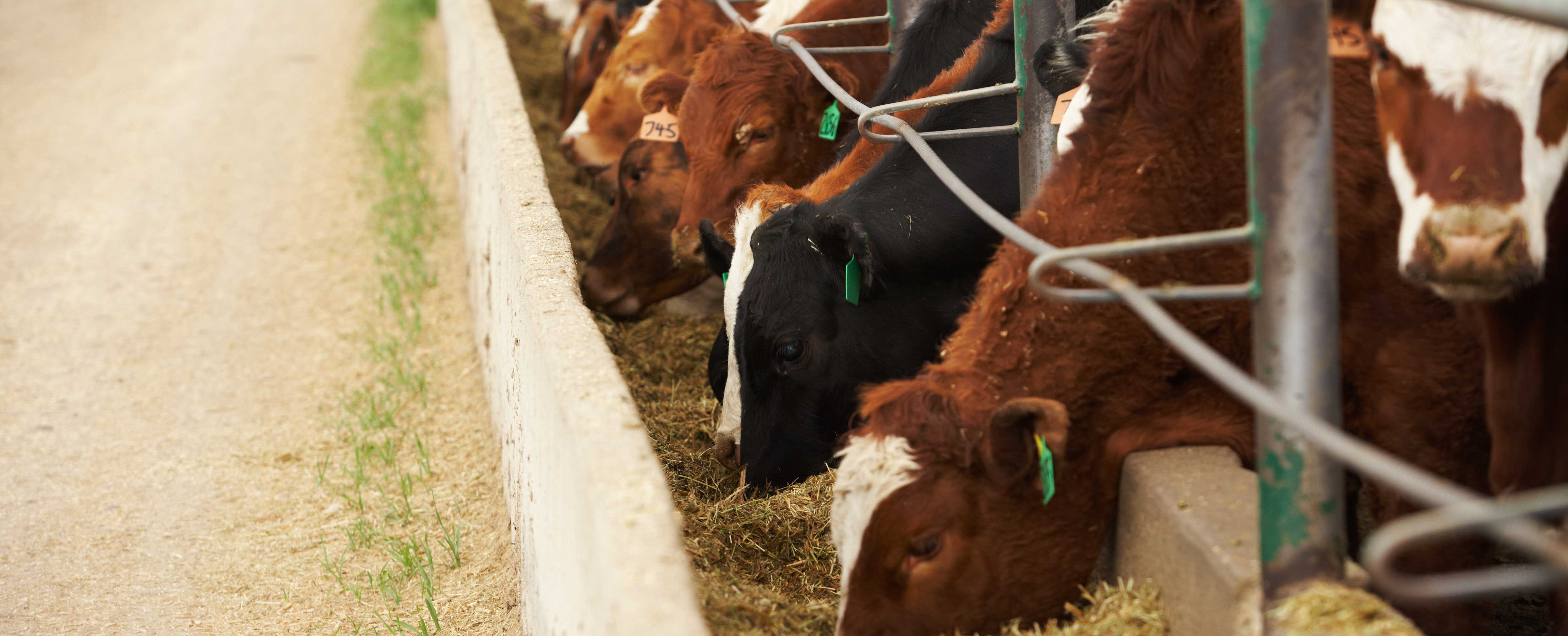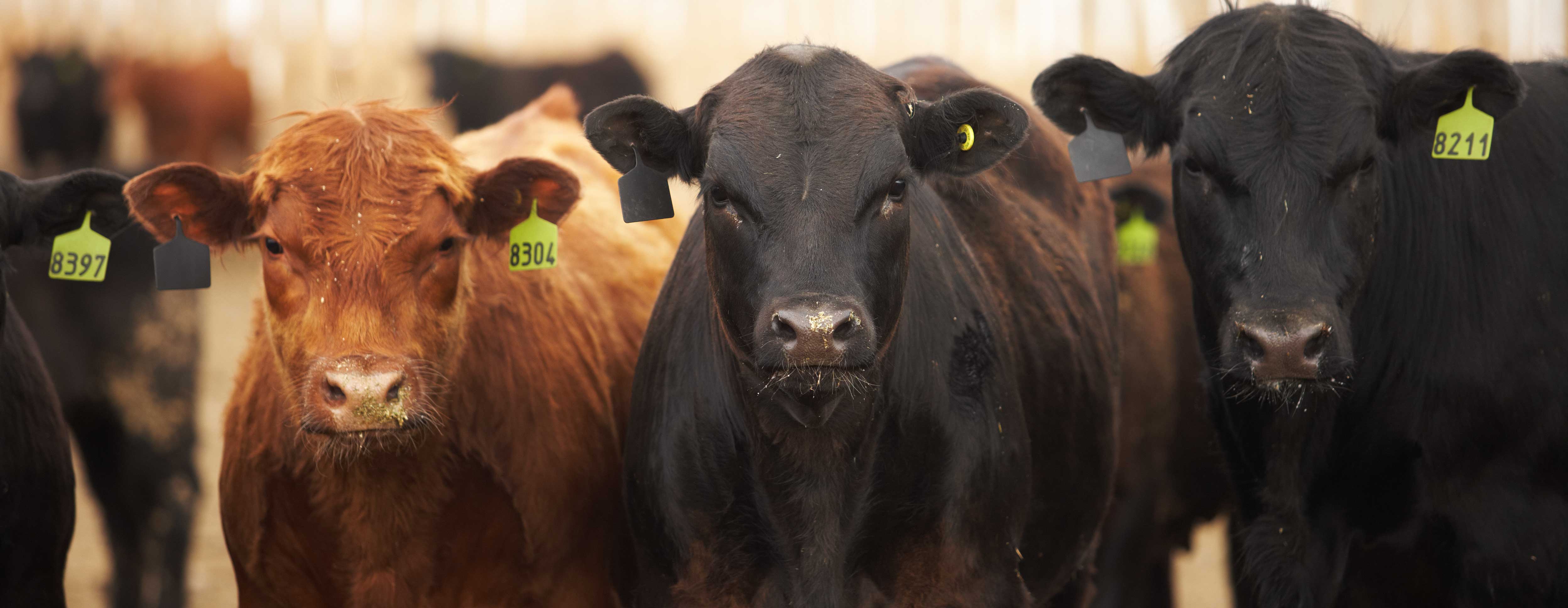Q & A: Melinda German and Ron Glaser on the 2016 Check-Off Program

This past January, the Canadian Beef Cattle Research, Market Development and Promotion Agency announced the appointment of Melinda German as their new general manager. The announcement meant more than just bringing a new face into the organization but a new position with the aim to roll the check-off into the new frontier that is beef exporting and marketing in 2016. German brings a wealth of industry experience into the new position and according to Ron Glaser, VP Corporate Affairs, she was exactly what they were looking for
Canadian Meat Business had the opportunity to engage both Melinda and Ron in a Q & A to usher in 2016 from the standpoint of the check-off and to discuss the exciting year ahead.
CMB: I appreciate you both taking the time to do this Q + A with us.
RON: I kind of feel like I’m photo bombing the interview a little. Actually, I’m really glad I’m getting a chance to talk about Melinda joining the organization and what her contribution and experience is going to bring to us. We’re very pleased to have her with us.
MELINDA: And I’d just like to take this opportunity to thank Ron for his support in joining us for this interview as well as I actually start March 1st so he can definitely bring some background to the discussion.
CMB: Melinda can you tell is a bit of your background?
MELINDA: At present I’m the general manager of Manitoba Beef Producers, having worked in Manitoba for over 15 years. I’ve worked extensively with the provincial government here in Manitoba. For 13 of those 15 years I was also with the Manitoba Agriculture, Food and Rural Development, serving as director of the Livestock Knowledge Center. In that role I oversaw the provincial livestock specialists, the veterinary diagnostic laboratory and reporting to the assistant deputy minister.
CMB: So Manitoba born and raised.
MELINDA: Actually I grew up on a farm in west central Saskatchewan and the University of Saskatchewan where I completed my Bachelor and Masters degrees in beef production. Following that I worked in the industry in both Saskatchewan and Alberta before coming to Manitoba. So, I guess you can say it has always been my passion and because I do feel that level of commitment and sense of duty to the industry, I feel very fortunate to have been given this position that will allow me to work for the betterment of our industry.
CMB: We’re you surprised by this new appointment?
MELINDA: Well, I feel my roles in the government sectors has definitely prepared me for what’s ahead, so I’m confident coming into the agency. But even though it is exciting, it is one of those things that is kind of bitter sweet. I’ve lived in Manitoba for 15 years and this understandably is a big move for me. I’m a people person at heart so I’m a bit sad leaving behind my friends and co-workers I’ve gotten to know in the provincial side of the beef industry here.

CMB: Ron, what is your background?
RON: I’m actually a born and raised city kid from Calgary. My background is in public relations and communications. I joined the industry right out of school and had no agriculture background prior. Ironically, in Calgary, I think the assumption is your future in PR is destined for the oil towers downtown, but at that time, just like now, the oil industry was in a slump. There was just more opportunity in the agriculture sector and that’s where my opportunity came from. Twenty-five years later and I couldn’t be happier about it. I get to work with cattle producers who, just like Melinda, are very passionate about their product. Food is a very intimate product and with it is this very intrinsic connection to the land and rural Canadian communities. It really is a very meaningful industry and that can be very rewarding to be a part of that.
CMB: You’re now the VP of Corporate Affairs. What was your path to this position?
RON: My first position was with the Alberta Cattle Commission back then. In 2006 I made a lateral move to the Beef Information Center, which was the group responsible for domestic and U.S. beef marketing. And very similar to what Melinda said, I cut my teeth servicing the Alberta producers and was fortunate to take all those soft skills I’d learned and used that to benefit national cattle producers. Then in 2011 the Beef Information Center and the Canada Beef Export Federation, which was responsible for international beef marketing and the national check off agency, were consolidated into Canada Beef and I’ve been a proud member of the team since.

CMB: Melinda, how do you see your new role within this period of flux going on this year?
MELINDA: That’s a good question. This is a new position in terms of the accountability of organizational performance around national check off. But my role, primarily, working with colleagues at Canada Beef and the Beef Cattle Research Council, is to facilitate these initiatives that support the National Beef Strategy. The industry as a whole has been working towards a goal and I’ll have a part to play in that scheme. But also I’ll be ensuring our activities fall under the requirements of the farm products act. So, it’s a big administrative role albeit collaborative and leadership demanding as well.
CMB: This role will have a new scope for you?
MELINDA: Yes, very much and one of the things that makes it exciting for me is that it is a new journey. It’s a new opportunity because were working at things in a little bit of a different way while still building on the strengths that Canada Beef and the Beef Cattle Research Council has done, and will continue to keep doing, which I’m very proud to be a part of because they do great things for the industry. So, naturally, I’m really looking forward to being a part of continuing to build on those successes. That is very gratifying for me personally.
CMB: It looks like 2016 will be a big year for the agency.
MELINDA: Yes it is. As you know the national check-off covers two areas, the marketing and promotion of Canadian beef as well as the research, so as much as that can bring challenges, it is looking like it’s going to be a really good year. There is a lot of excitement in the industry and there is a lot happening. I’m really looking forward to getting into the role and working with my colleagues at the Beef Cattle Research Council and Canada Beef, and getting going on what is in front of us.

CMB: With the start of 2016, it appears COOL is almost behind us, how do you see that effecting marketing initiatives?
RON: COOL certainly remains an interesting topic. As we know, the industry has never been shy to brand its product as Canadian. Even though our issues with COOL were not about being identified as Canadian but the effect on market prices because of the logistics brought about because of COOL in the United States. We certainly are planning to continue to be Loud and Proud when it comes to promoting our brand, because now it is an opportunity to strengthen ourselves and see better returns, because the adversity has definitely set us up for future growth and prosperity.
MELINDA: Ron said this well so I’ll just add that the resolution of COOL, along with other markets like South Korea, is all very positive and bodes very well for our 2016 projections. When we start to see these markets open up, or in some cases re-open up to us, and see restrictions and trade barriers lifted, it’s going to contribute to stability in the market place for that given year. I think it’s fair to assume, even at this early point into 2016, that these factors will have a positive impact on the industry for all of Canada. That said, we still need to move into that herd rebuilding phase at the primary producer level to increase both our product and our supply because those types of movements in the international market place drive the kind of expansion within the industry.
CMB: Let’s change direction and talk about the Trans-Pacific Partnership (TPP). China recently visited the Beef Center of Excellence and these visits certainly speak to the marketing the organization is embarking upon.
RON: Definitely. We’ve had groups from Japan, China, Taiwan over the last couple of months in 2015. Our Center of Excellence is very busy enticing trade clients to Canada, demonstrating our production and processing systems, our beef quality, both in product and livestock. We continue to work hard with such initiatives to bring the brand to life for our export customers and help them see the opportunities they can have as a result.
CMB: Since we’re talking about plans and initiatives, we’re should also be talking about sustainability. It seems to be a big year shaping up in that area as well, especially with the assessment and the Beef Strategy Conference coming up.
RON: I’m glad you brought up sustainability. At Canadian Beef we have a brand promise, and supporting that plan are four pillars and one those is sustainability. It is a key element for us going forward. Social licenses in general are significant because consumers have awareness in where their food comes from and how it is raised. We also, here in Canada, have a very strong story to leverage our domestic and international marketing. As well, we are part of the Canadian round table and participated on various committees, and working hand in hand to quantify what we do here in Canada to adhere and support sustainability initiatives globally.
CMB: I was also curious about the balancing act that goes on between domestic and export sales. With the terrain changing, how is this effecting the check off today?
RON: Well, 10 years ago the industry was more focused on volume. In a lower supply phase like we’re in now, selling the beef is not the issue. What we’re trying to do is get the best possible value for the carcass and create as many opportunities as possible for producers’ cattle. That has meant targeting specific markets and customers in order to secure the best deals for all parts of the carcass and that involves both import and export customers. Canada has always been a trader market and industry, so we’ve always searched around the world for trade opportunities to seize, but balancing that with the fact that imports play a substantial role in the overall value of the carcass. It can be a balancing act for sure.
CMB: Melinda, is the scope of your new position fitting into that scheme as the first order of business?
MELINDA: Absolutely and I’m still adjusting to this new position, so determining the scope and expectations of my role will be foremost on my agenda. I can’t wait to get started in March. It’s definitely going to be an exciting year for beef in Canada.
RON: It sure is and we can’t wait for Melinda to arrive to be honest. We are a diverse industry where every province in the country raises cattle, and yet, each region is unique, and celebrating those differences translates to a strong Canadian brand overall. But the other side to that is there is a patch work of regulations, marketing and check-offs across the provinces, so developing a common strategy and approach across the industry is the challenge. Working with provincial stakeholders to blend that diversity is where Melinda is going to be key for us.
CMB: That’s an important point to note because what producers deal with in Alberta is not what they deal with in Cape Breton Island.
RON: Well, let me say this. If you’re a cattle producer paying check-off, that deserves respect and it deserves representation regardless of where you’re producing.
MELINDA: As Ron said, our industry is so diverse, with so many great success stories to celebrate in terms of differing production and marketing methods across all the regions. Getting to know the producers from coast to coast and utilizing that diversity to strengthen our Canadian brand even more is the challenge for me. In all honesty, that challenge is one of the key aspects of my new position that I’m really looking forward to.For more information on the Canadian Beef Cattle Research Agency, visit www.beefresearch.ca
CMB wishes to thank Tayla Fraser for her help with this interview.
All photos curtesy of Canada Beef
Cam Patterson – meatbusiness.ca















